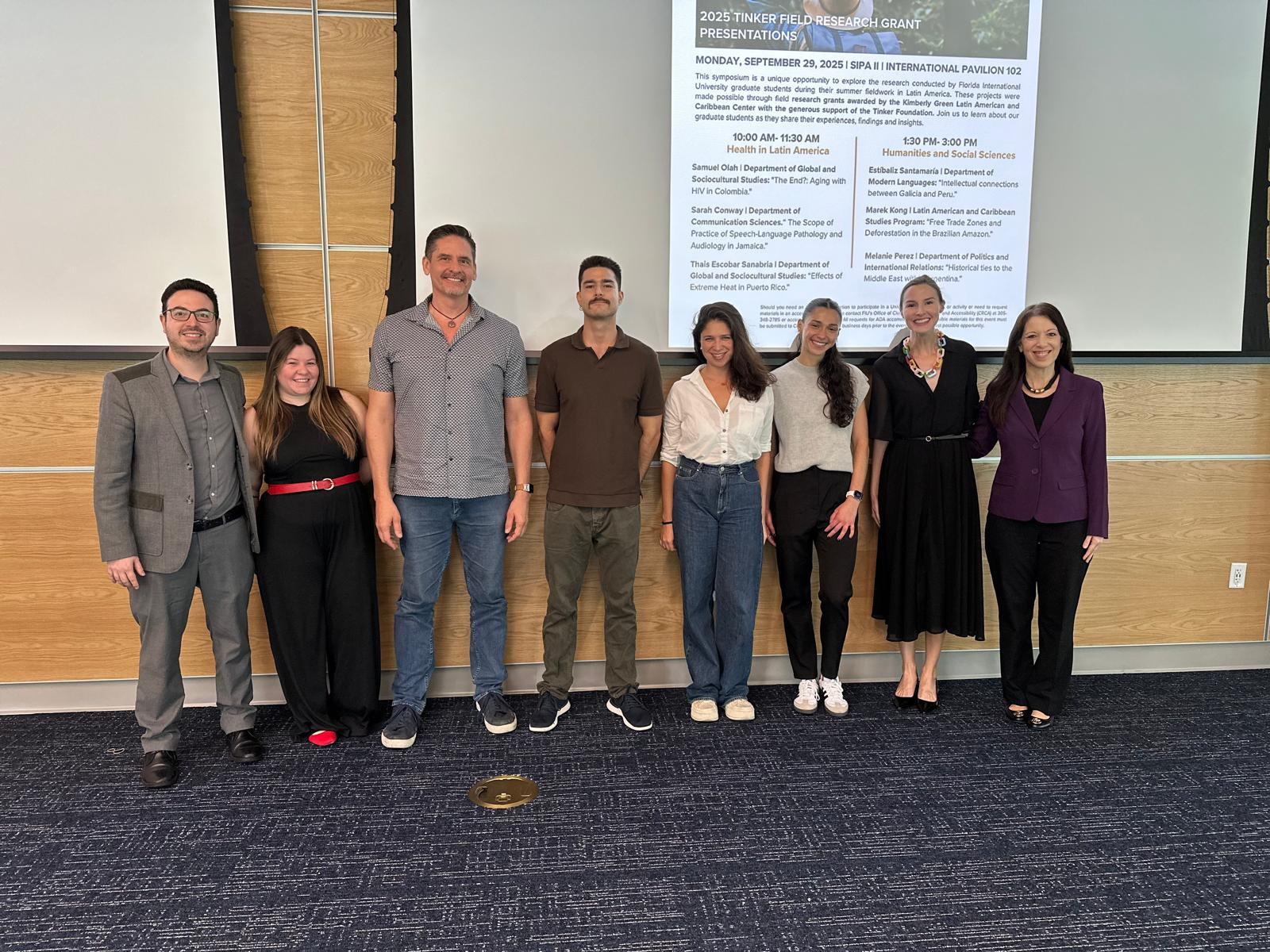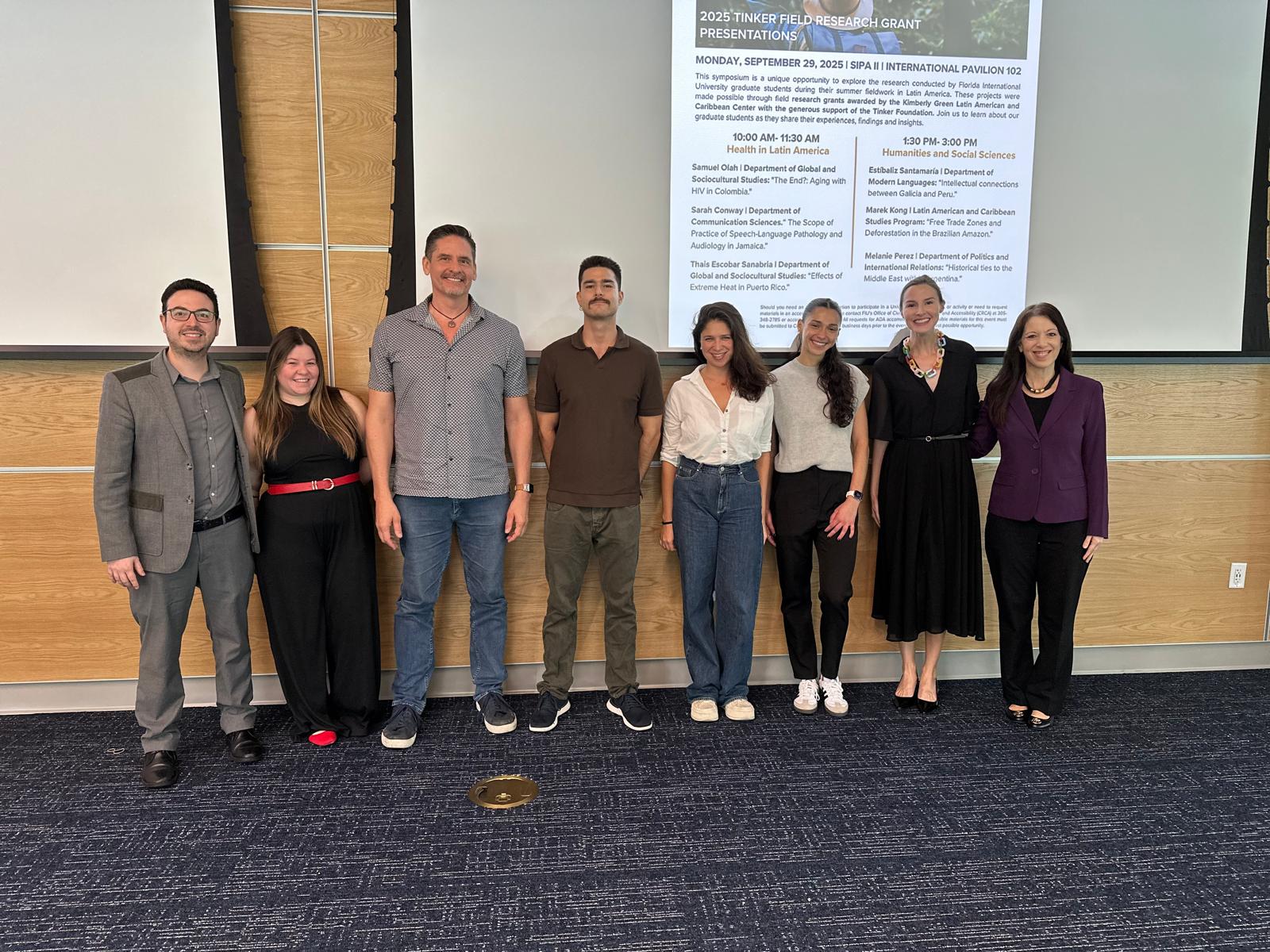Seventeen FIU students were awarded the 2025 Tinker Field Research Collaborative Grant, which provides support for graduate field research throughout Latin America and the Caribbean. These grants allow students to conduct on-site research that deepens understanding of the region’s complex social, political, cultural, and environmental dynamics.
On Monday, September 29th, six grantees shared their research findings from their fieldwork across Latin America and the Caribbean. Their research topics ranged from health issues to immigrant legacies in Latin America and the Caribbean.
The remaining eleven Tinker grantees, who are currently concluding their fieldwork, will present their findings on Wednesday, November 19th. We are proud to support their impactful research and look forward to seeing how their work continues to shape knowledge of the LAC region.
The researchers work in diverse fields, including the humanities, social sciences, public health, and ecology/environmental sciences.
First Symposium on September 29
Sarah Conway, MS Speech and Language Pathology: “The Scope of Practice of Speech-Language Pathology and Audiology in Jamaica”
Thais Escobar Sanabria, PhD Global and Sociocultural Studies: “Effects of Extreme Heat in Puerto Rico”
Marek Kong, MA Latin American and Caribbean Studies: “Free Trade Zones and Deforestation in the Brazilian Amazon”
Samuel Olah, PhD Global and Sociocultural Studies: “The End? Aging with HIV in Colombia”
Melanie Perez, Combined MA Religious Studies and PhD International Relations: “Historical ties to the Middle East within Argentina”
Estíbaliz Santamaría, PhD Modern Languages: “Intellectual connections between Galicia and Peru”
Second Symposium on November 19
Monica Brown, MS Environmental Studies: “Drivers of Nest Site Selection in Underground Nesting Bahama Parrots on Great Abaco”
Juan Sebastián Castillo, PhD Psychology: “Emerging Adult Latinos & Mental Health Seeking: Exploring perceptions across Colombia and U.S. Latino Populations”
Andrew Natter, MS Biology: “Assessing Genetic Connectivity of Permit (Trachinotus falcatus) Between Belize and South Florida”
Gabriela Ochoa, Combined MS Forensic Science and PhD Biology: “Understanding Shark Movements and Foraging at Spawning Aggregations in Belize”
Ruchao Qian, PhD Biology: “Crypsis and Motion Camouflage in Praying Mantises”
David Santamaría, PhD Earth Systems Science: “The hippopotamus (Hippopotamus amphibious) and their impacts as an invasive species in Colombia”
Nicholas Sirlouis, PhD Biology: “How patterns of ecological succession, abiotic gradients, and land use history impact the availability of ecosystem services in tropical forests”
Nyya Toussaint, PhD History: “Global Black Social Movements and dependance on third spaces”
Courtney Weis, PhD History: “Testing whether menstruation was universally a catalyst for adulthood in the early modern period of the Spanish empire”
Veronica Zuccolo, PhD Biology: “Testing whether menstruation was universally a catalyst for adulthood in the early modern period of the Spanish empire”

